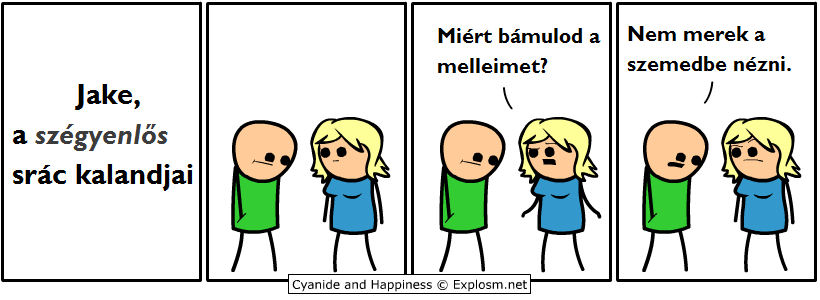FINNISH
I'm still in the middle of
Suomen Mestari 2's chapter 7 whose focus for grammar is the declension in plural. Because of a change in plans (see below), I've switched to using
Teach Yourself Finnish Tutor as my main resource. This has nothing to do with the quality of the
Suomen Mestari series which I've come to like a lot for its no-nonsense approach, ton of exercises (with answer keys too) and obvious focus on teaching Finnish which a newcomer to Finland (i.e. exchange student, (im)migrant, foreign employee at a Finnish workplace) needs to know. The storyline of the entire series also hangs better than the ones used in each of
Teach Yourself Finnish and
Finnish for Foreigners to say nothing of
Colloquial Finnish whose dialogues have a revolving door of semi-anonymous speakers named Juhani, Kaisa, Liisa, Mrs. Marple, Norman, Paul, Päivi, and Sanna among a few others. I was very much looking forward to finishing the 2nd volume, and getting going with the 3rd volume as that volume and the 4th one use colloquial Finnish in their dialogues, and have subsections devoted to colloquial Finnish alongside introduction to more specialized vocabulary and exploration of more advanced points in grammar. With the way things are going, however, I've had to conclude that I don't have enough time to make the best use of it, and have to resort to maintaining (sort of) my knowledge by using a workbook.

(source:
Kielikylpysuolaa via
Musta hevonen-sarjakuva)
1) 1:00 “I can't sleep... Maybe I'll read something.”
2) 1:01 “The Serbo-Croatian language is a South Slavonic language belonging to the Indo-European language family.”
3) 1:02 *snoring* (N.B. This gag would work with any language whose alphabet uses
ž)
GERMAN
I've finished the 2nd chapter in each of
Geschäftliche Begegnungen B1+ and
Menschen im Beruf Bewerbungs-Training (A2/B1). In the former I got an introduction to language related to income and what to do with that income (i.e. savings, budgeting) while with the latter I plowed through material about the language of job offers/postings.
It's bugged me a fair bit more as I've been studying that I have so many holes in my vocabulary. In addition to the problems with derivatives of
tragen mentioned in my last entry, I've started thinking about derivatives of
ziehen “to pull” as in
der Abzug “(account) statement” and
erziehen “to educate”. I've learned many such words over the years, but even now still get a little confused or struggle to get the gist of some of them.
I spent a good part of this afternoon filling in a few pages in my notebook with a special section devoted to prefixed forms of
tragen and derivatives (e.g.
der Ertrag “output, yield”) complete with an example sentence for each. Once I'm done with those, I'll do the same for
ziehen and any other roots in the future if I get sufficiently bothered by being tripped up by derivatives. Man, I can already see myself doing this exercise with
zählen “to count” etc. too after realizing how I had to look up
die Anzahl a couple of weeks ago. I also have been working haphazardly with
Practice Makes Perfect German Vocabulary and will look into using
Schaum's Outlines - German Vocabulary if needed.
I'm still slowly making my way through that book about the German fighter squadron in WWII (
Chronik Jagdgeschwader 301/302 «Wilde Sau» by Willi Reschke) and am now getting into more action as 1943 comes to a close. Casualties are mounting despite some successes against British bombers. Because of how dense the text is I'm happy enough to read a page or two in bed with a German-English dictionary at my side every night or two before falling asleep. I've resisted the temptation to get the English translation of the book although
the much higher price makes it easier for me to stick to the German original.

(source:
Die Dramatik der Dinge by
Katharina Greve)
1) *Ring, ring* - “Yes! Press me!”
2) *Ring, ring* - “Quiet down there!” - “Yes! Yes! Harder!”
3) “Slut!” - “Yuppie!” - “This is what I just hate about blocks of flats!”
ITALIAN
This might not be as big a surprise as when I revealed a while ago that I was studying Russian in preparation for the Turkic Challenge, but with a (probable) trip to Italy looming, I've bitten the bullet and embarked on a crash course to learn Italian. It's weird for me to be a beginner in FIGS as I haven't really been in this position since I started learning German long ago, and French even farther back (I started dabbling in Spanish last year but it ended soon after it had started once my plans to visit South America had fallen through). It's early days but things are coming to me pretty quickly compared to how they were when I was a beginner in Hungarian or any language outside the FIGS bubble for that matter. I'm not bothered by grammatical gender or pronunciation, and the discount in vocabulary thanks to knowing English and French is welcome. The first thing that has given me pause is the set of alternations when combining prepositions with definite articles, and I suspect that it'll take me some time to figure out the prepositions. I can already sense that it'll take some effort to work off the French interference when I get to
a, di, da, in and
per which I'll probably keep seeing as
à, de, en and
pour for the first little while. As a bonus, I do like the sound of the language and it falls better on my ear than the other Romance languages. Yet it will never speak to me as Finnish, Hungarian, Polish or Slovak do.
To learn it, I've been using a few courses. My main course with audio is Alwena Lamping's
Talk Italian. For grammar, I'm using
Painless Italian and
Italian Demystified both by Marcel Danesi. To kill time on the way to and from work on the bus, I'm flipping through
See it and Say it in Italian by Giuseppina Salvadori and Margarita Madrigal as an alternative to reading my notebook of German vocabulary.
Lamping's course is meant for beginners with short lessons anchored by phrases or sentences useful to visitors (e.g. greetings, ordering food, reporting theft, booking accommodation), although it doesn't shy away from grammar and where necessary does present brief explanations of some of the nuts and bolts buried in the phrases and situational language. Many of its exercises are also meant to develop some skill in listening comprehension and speaking which is fine by me since I have no Italian friends to practice with. So far, I've already finished the first 3 of the 10 chapters in the first volume.
Danesi's
Painless Italian is a textbook for beginners in high school, and has a conversational tone in its dumbed-down explanations of grammar, complete with contrived texts in the point of view of children as they describe their homes, friends, favorite foods, hobbies or life at school. Despite its adolescent setting, it's not that bad for an adult and it has a lot of exercises to practice grammar and basic vocabulary. It would have been nice if it had recordings of the dialogues/narrative although it is meant for use in a class for beginners (7th, 8th, 9th grade?) lasting at least 20 weeks with the teacher building his/her course around the book, and then using its exercises as part of the daily homework. Speaking and listening exercises would be handled by the teacher rather than the book. I've already finished the first 4 of its 10 chapters. The other book of his that I'm using,
Italian Demystified, is a textbook on Italian grammar for beginners but its CD offers a bit of speaking practice that complements the slightly drier exercises and quizzes in the book. I like the layout and concise explanations of grammar. I've just started work on the 8th chapter (of 20).
See it and Say it in Italian is the Italian counterpart of Madrigal's
See it and Say it in Spanish which in turn is a heavily reduced version of her
Madrigal's Magic Key to Spanish.
See it and Say it in Italian is a bit like a phrasebook with each page containing about a half dozen simple questions and answers (e.g. “Did you buy a suit? Yes, I bought a suit”.). The idea is that by seeing the same type of sentence with different vocabulary over several pages, you'll pick up some bare basics. I like it just because it's not mentally demanding and sometimes better than flipping through a deck of flash cards, reviewing a long list of vocabulary or reading a language textbook.
I also have a second-hand copy of
Oxford Take off in Italian but haven't been using it because I'm happy what the other courses so far. I'm quite sure though that it's good too if it's anything like the volume for Russian.
After about a few weeks of study, I've already picked up some survival vocabulary, the present tense, plural, in/definite articles, and cardinal numbers to 1000. Let's see how far I take this.
---
MISCELLANEOUS
In spite of the preceding, I've actually scaled back my language-learning a fair bit recently and it'll stay this way for a while. I'm spending more of my free time on work-related projects, and what time is left for languages will be for Italian (as long as the trip is on), and German as I have an exam in mind. If it'll be
Zertifikat-Deutsch (B1), then the earliest when I could see myself taking the exam is this summer. If I choose to go for B2 instead (and thus skip taking B1), then this fall would be the earliest when I could envision taking it. What I ultimately do depends on my confidence after having completed some practice exams, and how my stuff for work progresses. I have exam prep books from Cornelsen and Hueber for B1 and B2 ready to go in addition to the freebies from Goethe Institut. I'll have to work on my listening and speaking abilities too and may need to sign up for advanced conversation classes at Goethe Institut if I can't find a suitable (and affordable) tutor to improve my spontaneous output. Of course, I already have bookmarks for
Langsam gesprochene Nachrichten,
DLI GLOSS and
Grüße aus Deutschland to provide some listening practice. My Finnish studies will be down to plodding through
Teach Yourself Finnish Tutor in a spare moment. My plan to continue with
Finnish for Foreigners 2 and the rest of
Suomen Mestari will have to wait. I can't see my life without Finnish. My stuff for Hungarian, Polish, and Slovak is back on the shelf, unfortunately. Occasional exposure will have to do not to let my knowledge fade unduly in the next while.




/grogy-127-zelania.jpg)






